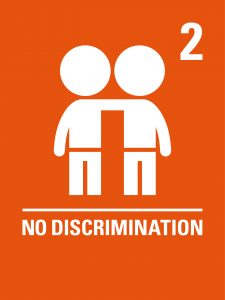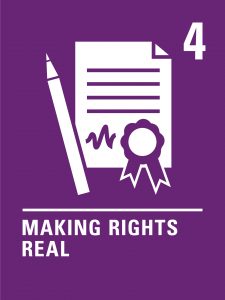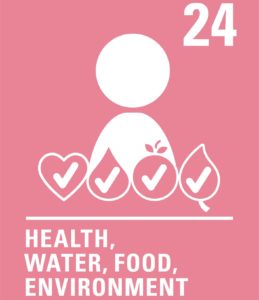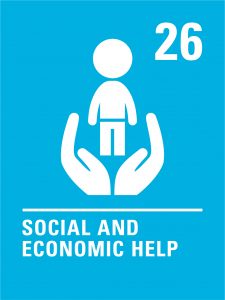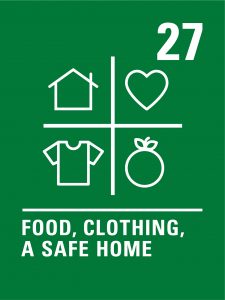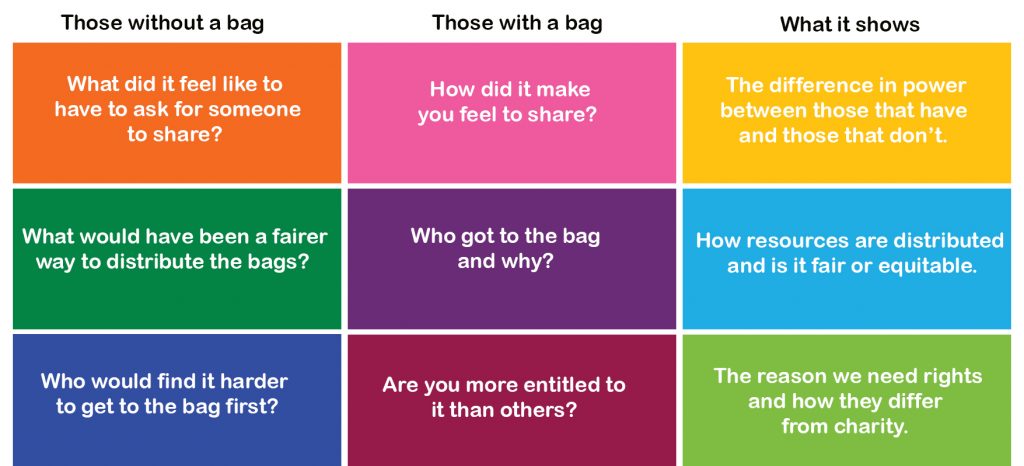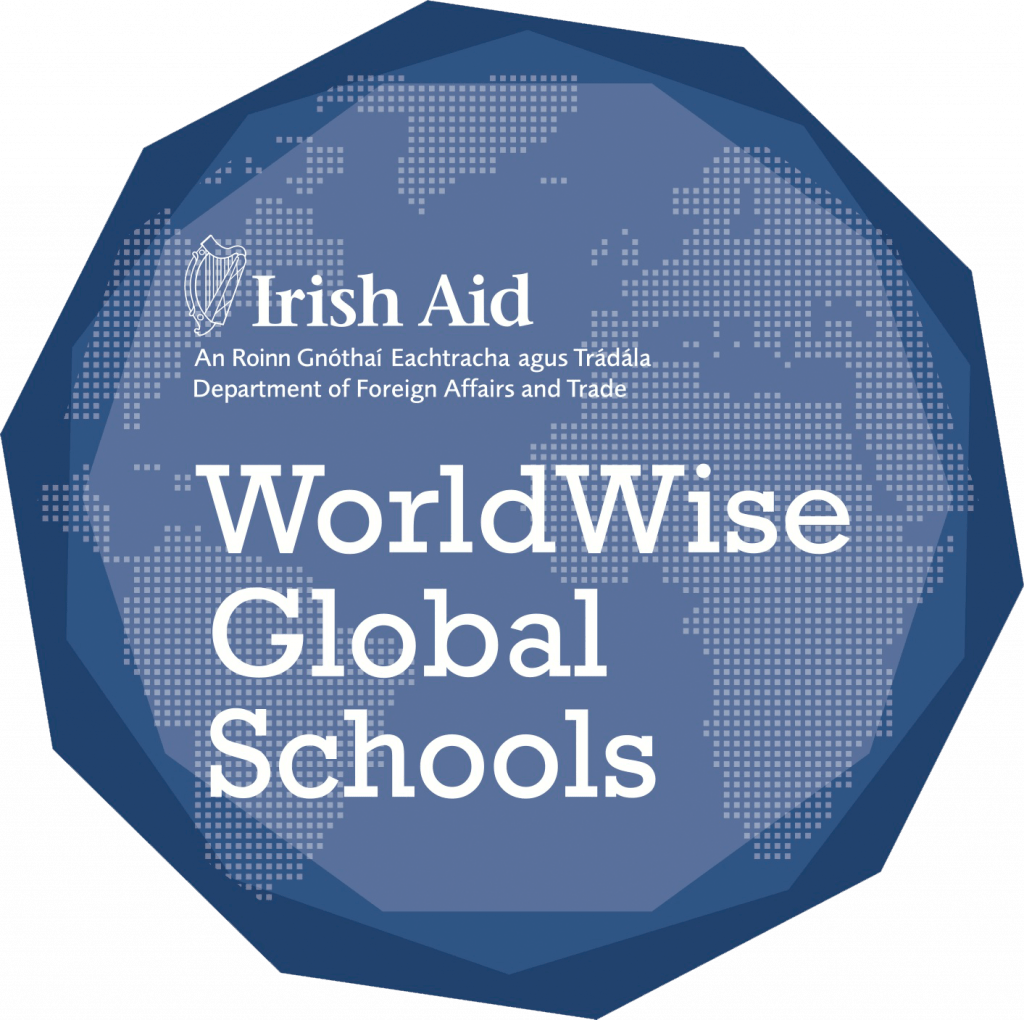A right to a home is one of the most fundamental rights for a child.
END HOMELESSNESS – Childhood is a time for children to be in school, to learn and grow in confidence. It is a time to play and develop friendships, hobbies and memories. We all get to experience just one childhood, it is the duty of all adults to protect that childhood to ensure children reach their full potential. For children who experience homelessness, their childhood is put in jeopardy. In this lesson, learn about the root causes of homelessness and how to take action in support of ending homelessness.
Workshop Activities
| Activity 1 | Rights versus Charity | 20 Mins |
| Activity 2 | Social Contract | 20 Mins |
| Activity 3 | Root Causes of Homelessness | 30 Mins |
| Activity 4 | Youth Homelessness | 30 mins |
Learning Objectives
- Demonstrate an understanding of the social contract, why it exists and its importance to society.
- Apply a rights-based approach to understanding homelessness.
- Identify the root causes of homelessness in Ireland and its impact.
Curriculum Connections
JUNIOR CYCLE
Statements of Learning
SOL 7: The student values what it means to be an active citizen, with rights and responsibilities in local and wider contexts.
SOL 9: The student understands the origin and impacts of social, economic, and environmental aspects of the world around her/him.
SOL 11: The student takes action to safeguard and promote her/his wellbeing and that of others
SOL 23: Brings an idea from conception to realisation
JC WELLBEING – This programme works on achieving the following Well-being indicators. Responsible – I take action to protect and promote my wellbeing and that of others Connected – I feel connected to my school, my friends, my community and the wider world. I appreciate that my actions and interactions impact on my own wellbeing and that of others, in local and global contexts. Respected – I feel that I am listened to and valued. I have positive relationships with my friends, my peers and my teachers. I show care and respect for others.
JC CSPE Rights and Responsibilities, Human Dignity and Homelessness, Democracy and Constitution
JC SPHE Strand 2 L0 2.3
SENIOR CYCLE
SC ECONOMICS – Strand 1 What is economics about?, Strand 2 How are economic decisions made?, 3 What can markets do?, and 4 What is the relationship between policy and economic performance?
SC POLITICS & SOCIETY Strand 1 Power and decision-making Strand 2 Active Citizenship Strand 3 Human rights and responsibilities
Resources
Presentation for activities and discussions
Teaching Notes
Sensitive Issue – This topic can be upsetting and could have a direct impact on participants, who might be or have experience of homelessness or who might be connected to someone who has. Be aware when speaking that homelessness is not about others, but is about us. Acknowledge this with the group and ensure there is someone people can speak with if they are upset.
Here is a helpful guide to follow on how to handle sensitive topics. If you are a young person leading these activities, please do so with the support of a teacher or adult.
In Ireland,
children are homeless and living in emergency accommodation.
Activity 1 – Rights versus Charity
Duration: 20 Mins
The aim of this activity is to provide participants with an understanding of the difference between rights and charity. Please download this presentation to support your discussions
Activity: This activity helps participants understand the need for rights as opposed to relying on charity and handouts. Take a bag of supplies that can be divided among the group (individually wrapped Fair Trade sweets like Maltesers, jellies or crisps work well).
Make sure you only put out enough for half the class.
1. Ask participants when they come into the room, to grab a packet of sweets/crisps etc., sit down but don’t open them.
2. When everyone is seated they can open their bags
3. For those who did not get a bag of sweets, tell them to ask the person next to them if they will share.
Questions to ask participants:
This is why we create a rights-based society and not a society based on charity?
Activity 2 – Social Contract
Duration: 20 Mins
The aim of this activity is to introduce participants to social contracts and explore the kind of society they want to live in. Please refer to the presentation for support in your discussions.
Discussion: A society is a large group of people who live together in an organised way. In order to function well together, societies form a social contract. A social contract is an agreement between people to follow certain rules in return for order and protection of their rights. Governments and institutions help to form and govern those rules. The image below shows the societal structures that govern our world, from the UN at a global level, to the Taoiseach and Oireachtas at a national level and town councils and organisations at a local level.
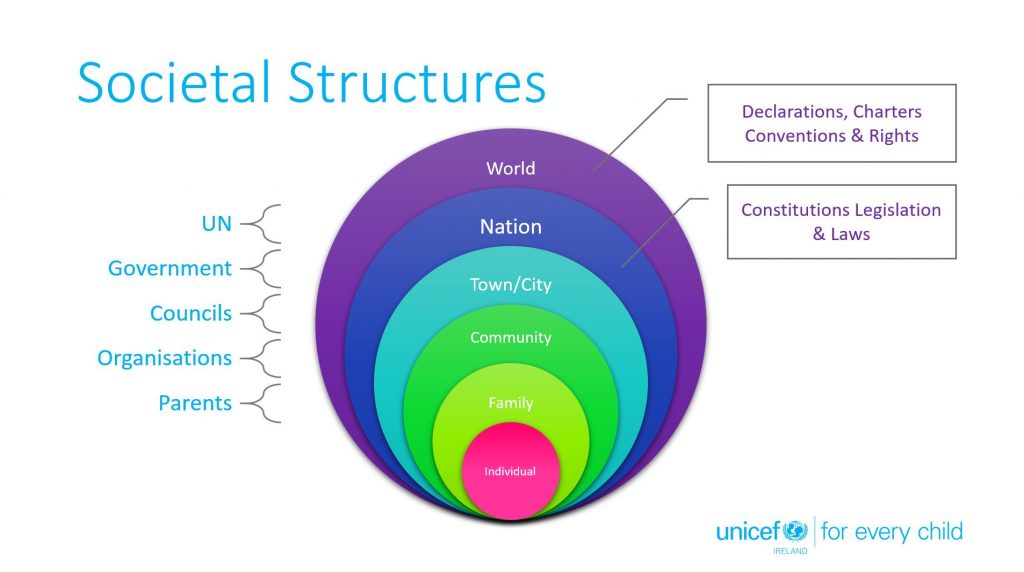
Group Work: Split the participants into three groups or “societies”. Ask the groups to discuss what type of a society they would like to live in and what rules, principles or rights they would define. Groups should draft their constitution.
Feedback: Amalgamate the responses into one document. Ask participants if there are any rights that stand out that might be different given the issues that are facing society today (rights to a future, sustainable planet, voting rights, new identity rights)? Ask participants how they made decisions as a group? Was it democratic, inclusive or did people take over the discussion?
Poverty not only hurts the individual affected; it hurts communities, the economy and society. At present, there is no explicit right to housing in the Constitution or in Irish law. The Constitutional Convention recommended in February 2014 that the Constitution should be amended to include economic, social and cultural rights, including a specific right to housing, but no decision has yet been made on this recommendation.
A strengthening of the right to housing in the Constitution and strict limits on how long a family spends in emergency accommodation are among the recommendations made by the Oireachtas Committee on Children. In a report on homelessness.
Extensions: Compare the new document with the Irish Constitution and or the first Democratic Programme. Discuss the similarities and differences and compare and contrast the different ways children were treated in the two documents. Analyse the state of the economy in 1919, 1937 and today.
Activity 3 – Root Causes of Homelessness
Duration: 30 Mins
The aim of this activity is to understand some of the root causes of homelessness and roleplay the difficulties in finding solutions
Discussion: Ask participants for the reasons people become homeless.
- Lack of affordable housing
- Addiction issues
- Mental health
- Domestic violence
- Runaway
- Poverty
- Leaving care
Roleplay – What’s My Next Step?: Ask for two volunteers to role-play the difficulties facing people who are made homeless. Provide two students with Eoin and Siobhan scenario sheets. Ask the volunteer to read out their scenario and decide where they will go for help. Find 3-4 audience members who can roleplay “family and friends”, “Charity”, “Local Authority” or Gardaí. Page two of the scenario sheet has responses for each person. Siobhan or Eoin are asked to figure out what steps they need to take upon becoming homeless.
Download Scenarios Siobhan, Eoin
Discussion: What have the people in the scenario lost through the experience of being homeless? Ask participants to write on a post-it note words that describe what home means to them and what they would miss if they had to leave their home. Conclude by showing participants this short video.
Activity 4 – Youth Homelessness
Duration: 30 mins
Discussion: In 1919 our first Dáil 100 years ago our parliamentarians wrote their democratic programme: It shall be the first duty of the Government of the Republic to make provision for the physical, mental and spiritual well-being of the children, to secure that no child shall suffer hunger or cold from lack of food, clothing, or shelter, but that all shall be provided with the means and facilities requisite for their proper education and training as Citizens of a Free and Gaelic Ireland.”
As a young person, what are you missing out on if you experience homelessness? Brainstorm a few ideas with the wider group.
Group Work: Mindmap: Divide group into smaller groups, representing different milestone and development ages. Ask participants to create a mindmap, with the child in the centre and the spokes going out from the centre including at least these headings
Relationships (how might relationships be impacting on parents, friendships, siblings and other family members) ,
Learning (how might learning be impacted at this age?)
Development/Milestones, (what developmental or societal milestones are children experiencing at this age)
Supports needed (what can a school, community, friends do to support)
This website can help participants understand specific milestones for certain age groups
Age 3 (Toddler)
Age 4 (Starting school)
Age 8 (Communion)
Age 12 (Finishing primary school)
Age 13 (Starting secondary school)
Age 14 (Junior Cert exams)
Age 17 (Leaving Cert, 6th-year graduation)
Feedback: Ask for feedback and discussion or presentation of their mindmaps. Ask participants to brainstorm as a wider group, ways in which the school community could support young people who might be experiencing homelessness. Remind participants students or families might not want to divulge they are homeless.
Extension: Investigate the school’s response plan for meeting the needs of children experiencing homelessness. Offer as a class or group to develop a response to homelessness, a policy, awareness-raising training of available supports.
Take Action
We all have responsibility for achieving the Sustainable Development Goals by 2030. Below are the goals and their targets that address violence against children. Use them, along with the Convention on the Rights of the Child to support your call to take action and address these issues. Below are just a few suggestions of actions you can take.
Tools
Explore
This activity can help your school achieve a Global Passport Award. Learn more or apply at WWGS’s Global Passport Award.
Funded by Irish Aid’s WorldWise Global Schools – contents are the responsibility of its author and do not necessarily represent or reflect WWGS and or Irish Aid policy.
